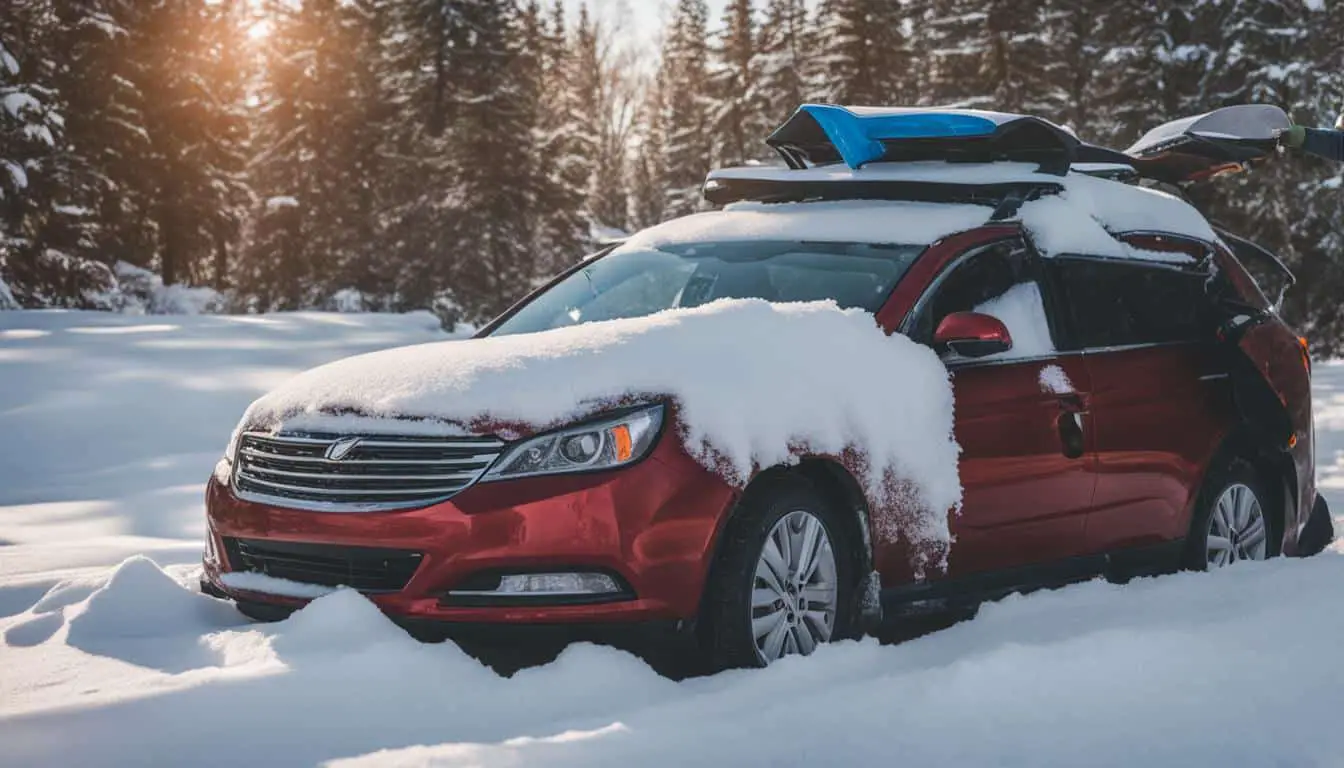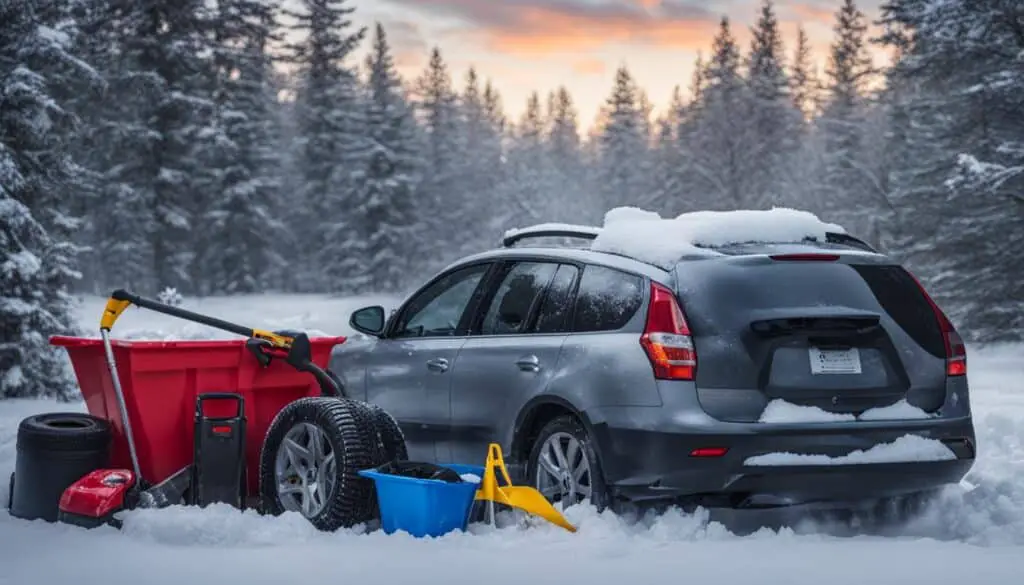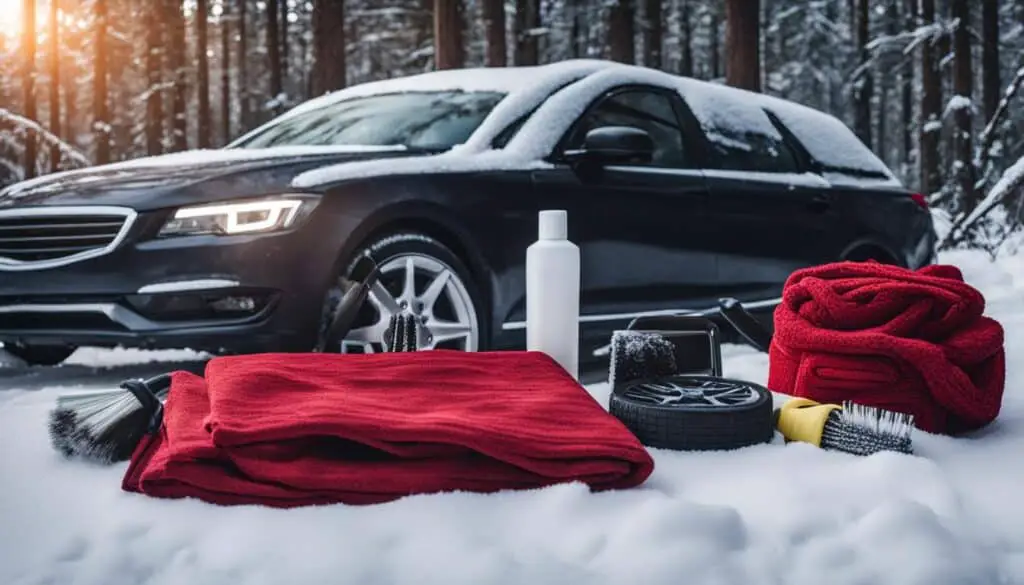
Winterizing Your Car: A Complete Guide
As winter approaches, it’s important to prepare your car for the colder months ahead. From checking your antifreeze levels to replacing your wiper blades, there are several essential steps you need to take to ensure your vehicle can handle the harsh winter conditions.
In this guide to winterizing your car, I’ll provide you with a comprehensive checklist that covers all the necessary maintenance tasks and safety measures that will help keep you and your passengers safe on the road.
With this guide, you’ll be able to confidently prepare your car for winter and prevent any potential breakdowns or accidents caused by the cold weather. Get ready to hit the road with peace of mind and confidence.
Key Takeaways
- Winterizing your car is essential to ensure safe driving during the colder months.
- Follow a comprehensive checklist to ensure your car is ready for winter.
- Tasks like checking antifreeze levels and inspecting your tires are crucial for winter car maintenance.
- Winter car safety should be a top priority – make sure to pack an emergency kit and practice safe driving techniques.
- By following the steps in this guide, you’ll be ready to tackle any winter driving challenges with confidence.
Winter Car Maintenance: Essential Tips
Winter is a challenging season for cars and drivers alike. I highly recommend following these winter car maintenance tips to prepare your vehicle for the colder months ahead.
1. Check Your Tires
Make sure your tires have enough tread depth and are properly inflated. This is especially important during winter when roads are often slippery and icy. You may also want to consider switching to winter tires for better traction and handling.
2. Test Your Battery
The colder temperatures can put a strain on your car’s battery. Get it tested by a professional and replace it if necessary to avoid any unexpected breakdowns on the road.
3. Replace Your Wiper Blades
Visibility is crucial when driving in winter conditions, so make sure your wiper blades are in good condition and can effectively clear your windshield. Replace them if needed.
4. Check Your Antifreeze Levels
Antifreeze is essential in preventing your car’s engine from freezing in cold temperatures. Make sure your antifreeze levels are topped off and the mixture is appropriate for the winter season.
5. Keep Your Fuel Tank Full
During winter, it’s important to keep your fuel tank at least half full to prevent your gas lines from freezing. A full tank also provides extra weight for better traction on slippery roads.
6. Wash and Wax Your Car
Winter weather can be tough on your car’s paint and body. Wash and wax your car to protect it from the elements and prevent rust and corrosion.
7. Keep a Winter Emergency Kit
Prepare a winter car emergency kit that includes a blanket, flashlight, ice scraper, shovel, and sand or kitty litter for traction in case you get stuck in the snow.

By following these winter car care tips, you can ensure that your vehicle is ready to handle the challenges of winter driving. Stay safe on the road this winter season!
Winter Car Safety: A Priority for Drivers
In the winter season, safety should always be a priority when driving. Cold weather and snow create hazardous road conditions that can be challenging to navigate. To ensure you’re protected from potential dangers, it’s important to have the right winter car essentials and follow safe driving practices. Here are some essential winter car safety tips you should keep in mind:
Stay Prepared with the Right Winter Car Essentials
Having the right winter car essentials can help you stay safe in case of an emergency. Some of the essential items you should keep in your car include:
- An ice scraper and a snow brush
- A shovel
- A spare tire
- Chains or other traction devices
- A flashlight and extra batteries
- Blankets and warm clothing
- A first aid kit
- A fully charged phone and a car charger
Having these items on hand can help you deal with unexpected situations and keep you warm and safe until help arrives.
Practice Safe Driving Techniques
Safe driving during the winter season requires additional caution and attention. Here are some tips that can help you stay safe on the road:
- Reduce your speed and leave plenty of room between yourself and other vehicles
- Use your headlights and turn signals to help other drivers see you
- Avoid sudden stops or sharp turns
- Brake gently to avoid skidding and sliding on icy roads
- Accelerate slowly to maintain traction and avoid spinning out
- Stay alert for black ice, which can be difficult to see but is extremely slippery
By following these safe driving techniques, you can reduce your risk of getting into an accident and stay safe during the winter season.
Regular Maintenance is Key
Regular maintenance is essential for keeping your car running smoothly during the winter season. Here are some of the key maintenance tasks you should focus on:
- Check your tire pressure regularly and make sure your tires have adequate tread depth
- Replace old or worn-out wiper blades to improve visibility in snowy conditions
- Ensure your windshield washer fluid is topped up and can withstand freezing temperatures
- Check your battery to ensure it’s in good condition and has enough power for cold weather starts
- Have your brakes checked to ensure they are responsive and can stop your car safely on slippery roads
By following these winter car essentials and safety tips, you can ensure your vehicle is ready to handle the challenges of the winter season and help keep you safe on the road.

Conclusion
As I wrap up this article, I want to emphasize the importance of prioritizing your winter car maintenance and safety. By following the comprehensive guide and incorporating the winter car tips mentioned, you can ensure your vehicle is ready for the challenges ahead.
Remember to perform regular maintenance checks, including checking oil levels, tires, antifreeze, and brakes. Keep your car stocked with essential winter car kit items such as a shovel, ice scraper, and blankets.
When driving in winter conditions, take it slow and approach turns and stops with caution. Avoid sudden movements and braking. By practicing safe driving habits and preparedness, you can stay safe on the road.
I hope these winter car tips have been helpful in preparing you for the upcoming season. Remember to stay vigilant and take the necessary precautions to protect yourself and others while driving in the winter months.
FAQ
What is winterizing a car?
Winterizing a car refers to the process of preparing your vehicle for the winter season. It involves taking specific maintenance steps to ensure your car performs well and remains safe in cold weather conditions.
What items should be included on a winter car checklist?
A winter car checklist should include items such as checking the battery, inspecting tires for proper tread and inflation, testing the heater and defroster, topping up antifreeze and windshield washer fluid, and ensuring the lights are working properly.
How often should I check my tire pressure during winter?
It is advisable to check your tire pressure at least once a month during the winter season. Cold temperatures can cause tire pressure to drop, which can affect your vehicle’s handling and fuel efficiency.
What are some essential winter car kit items?
Some essential winter car kit items include an ice scraper and snow brush, jumper cables, a flashlight, a blanket, a first aid kit, extra warm clothing, non-perishable snacks, and a portable phone charger.
What safe driving techniques should I follow during winter?
During winter, it is important to drive at slower speeds, increase following distance, avoid sudden acceleration or braking, and steer smoothly. Additionally, using winter tires and driving with headlights on can enhance safety on slippery roads.
How can I prevent my car doors from freezing shut?
To prevent car doors from freezing shut, you can apply a thin layer of silicone spray or a commercial de-icing product around the door seals. Additionally, parking in a garage or using a car cover can protect your vehicle from extreme cold.
Should I use a different type of oil in my car during winter?
Depending on your vehicle and the temperature in your region, using a different type of oil with a lower viscosity may be recommended. Consult your owner’s manual or a professional mechanic to determine the most suitable oil for winter use.
Are there any special considerations for electric or hybrid cars during winter?
Yes, electric and hybrid cars may require additional attention during winter. It is important to monitor and maintain optimal battery performance, pre-condition the cabin temperature while plugged in to conserve battery range, and ensure proper tire inflation to maximize efficiency.
